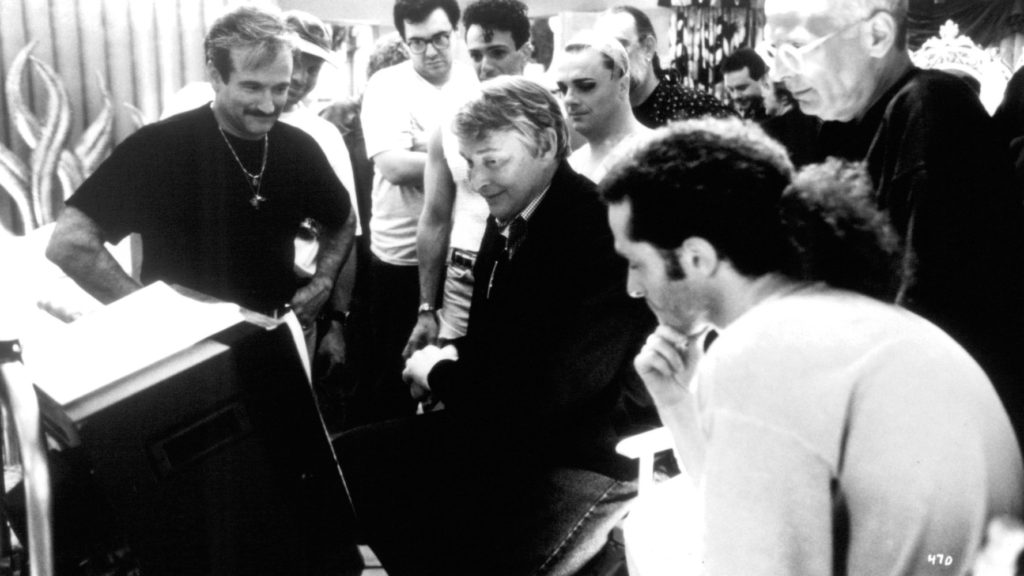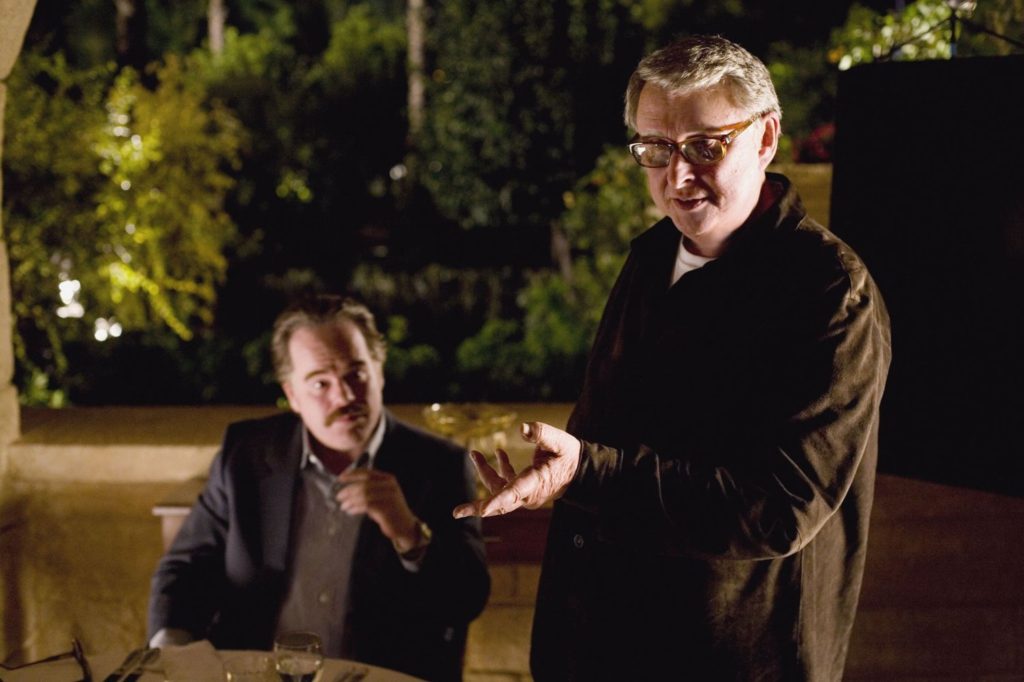“The Vision That Was Planted In My Brain Still Remains…”

Where have you gone, Mike Nichols?
That was a likely question from many fans of the celebrated late 1950s/early 1960s comedy duo Nichols and (Elaine) May, once the group broke up, and the former turned to filmmaking. But more than that, it was the type of films that Nichols would make that would turn heads. While many could loosely be considered “comedy”, (as in, there are laughs to be had), it was clear from his first frames that he was more interested in opening eyes, and perpetrating hard truths.
From his first film, the infamous adaptation of Who’s Afraid of Virginia Woolf? (1966), to his last, the politically resonant Tom Hanks/Julia Roberts starrer Charlie Wilson’s War (2007), Nichols never stopped pushing buttons, while also always working hard to entertain. Not every film was a slam dunk, particularly when he veered too far from his “real world” comfort zone. But all in all, the cultural mark Mike Nichols made upon viewers is something truly considerable. And no film of his left a deeper, more resonant and satisfying mark than his 1967 “comedy”, The Graduate. In its delivery of unforgettable characters and a masterfully off-kilter aesthetic, the film made a bona fide star out of Dustin Hoffman, and immortalized Simon & Garfunkel.
Here’s Sharon Autenrieth with a few thoughts on that milestone movie, and more:

Sharon Autenrieth: In the handful of Mike Nichols movies I’ve seen (I’ve got some catching up to do), I’m struck by the merger of beautiful, bold visuals, and darkness in the heart of the characters. By the time I reached adulthood The Graduate was such an iconic film that I thought I knew what it was without having seen it. Benjamin Braddock (Dustin Hoffman) was the everyman of his generation: rejecting the soulless suburbia of his upbringing, in pursuit of something more authentic than plastics.
Many of Nichols’ films contained that same intoxicating mixture: sexy, sly, funny, beautiful – and also amoral, ruthless, dark.
It was an actual shock to me to actually watch The Graduate for the first time and discover how unlikeable, even cruel, Benjamin was. He was rejecting his parents’ value system all right, but with complete disregard for those around him. His seeming inability to actually care about anyone is why the movie’s ending is so sour and brilliant. Yes, he’s committed a grand, absurd gesture in interrupting his ex-girlfriend’s wedding, and they’ve run away together. But it takes only a few moments for their faces to reflect how unlikely any lasting happiness will be. It wasn’t love that brought Benjamin to the church that day: it was narcissism.

That rotten core in The Graduate is part of what gives Nichols’ vivid direction its power. Saturated colors; touches of surrealism, particularly in the famous scuba diving scene; and showy framing as in the even more famous scene in which Hoffman is shot through the crook of Mrs. Robinson’s knee – the characters may be impossible to love, but we can’t look away. Anne Bancroft was genuinely sexy in that role, even if her character’s soul was thoroughly corroded. She seduced Benjamin, but Nichols made sure that the audience was seduced right along with him.
Many of Nichols’ films contained that same intoxicating mixture: sexy, sly, funny, beautiful – and also amoral, ruthless, dark. The first Nichols film I ever saw was Working Girl (1988), a movie that shifted Melanie Griffith’s image away from pure sex symbol to sex symbol with a brain, and unbridled ambition. Who could forget the line, delivered in her baby voice, “I’ve got a head for business and a bod for sin”? Griffith’s Long Island secretary, Tess, climbs the ladder quickly, and with the full support of the audience, but she does so through deception. Don’t think too long about the morality of the story: it will leave you a bit queasy. In the final, triumphant scene we see Tess ensconced in her lavish new office, and then the camera pulls back and back, showing that she is just another willing cog in the machine of corporate greed. This is a Horatio Alger story, ’80s style. Benjamin’s generation may have been rejecting plastic affluence, but Tess’s was only to happy to embrace it.
In movies as varied as Silkwood, Primary Colors and Closer, Mike Nichols tapped into the spirit of the age in ways that both flattered and exposed. His keen assessments of who we are will be missed.

Jim Tudor: Earlier today, while commenting to my father on the passing of Mike Nichols, I inquired if The Graduate meant anything to him. “Uh… no,” was his response, quickly followed by, “But I’m sure there were Mr. Robinsons around before then…” Although Nichols was a solid decade older than my dad, The Graduate to him (and many others) is merely a movie about a young man falling prey to an affair with an older woman. But, as Sharon points out, that’s not what The Graduate is really about at all. Somehow, Nichols, working fully within the Hollywood system, was able to not only make a film that uniquely spoke loudly and clearly to a youth generation much younger than himself. Sure, The Graduate does show its age, but to hold that against any important work is shortsighted. That said, it certainly holds up better than other 1960s youth culture milestones, such as Dennis Hopper’s Easy Rider.
I fully agree with Sharon’s observation that no matter which decade Nichols was working in, he always had something to say. His characters don’t get free passes, and neither do his viewers. Even as Mike Nichols has now gone, a nation will continue to turn its lonely eyes to him, and his most satisfying, vital work.

